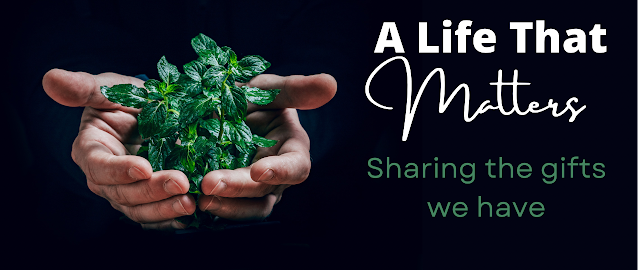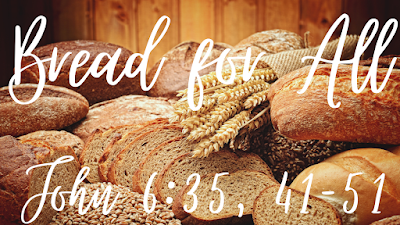Do You Know What I Have Done? - John 13:1-17, 31b-35 (Maundy Thursday C)
Do any of us really know what God has done for us? We know that in our scripture tonight, Jesus is doing two things for us. He washes feet, and has commanded us to be loving to “one another”. We’ll explore each of these separately, but let’s jump into the first half, about the footwashing.
The narrator gives us what's happening in the most mixed up way in verse one. Before the festival of the passover... which should be an extremely happy event - if you remember, this is the celebration of the Israelites being released from Egyptian captivity, and escaped through the miracles of Moses. They were liberated out of bondage, and so the passover is celebrated, maybe even like our Independence Day! But in finishing that sentence, Jesus KNEW that his hour had come to depart from this world. This introduction almost seems like Charles Dickens had lifted it for his opening line of A Tale of Two Cities - it was the best of times, and it was the worst of times... everyone around Jesus was gearing up for a party - man, it's time for spring break - but Jesus himself was not in the same spirit.
The meal - which could be cause for celebration - May have been viewed differently by the other twelve than Jesus. We expect for a day like this to be written about extensively in the scriptures. But John doesn’t really get into the dinner. There is no breaking bodies or blood out poured. Maybe that’s not his thing - maybe for the author, it was just another meeting of the faithful, and so at the beginning seemed like any other ordinary event. I don’t want to speak for them, but after the meal and Jesus gets up, grabs the basin of water to wash feet- everyone there must have known something was off.
You can recall we talked about this a couple weeks ago when I preached about Mary and her anointing Jesus’ feet in the previous chapter of the Gospel. Again - the same verb is used here in the Greek for when Mary wiped Jesus’ feet, and Jesus “washing” the disciples. But unlike the story with Mary, Peter objects. He can’t believe that Jesus would act so… lowly, so inferior. Maybe Peter was even embarrassed by his pride… that he can’t justify what’s happening. It could be why he overcompensates the other way - WASH ALL OF ME, JESUS! I CAN"T GET ENOUGH OF IT. He wanted to make it about him - to be sure of his salvation, to be vocal about how he wants to be all of what Jesus desires. What he doesn’t know - he already is. Peter is a part of the community that gathered around Jesus. That’s what this part of our scripture tonight is talking about. He is grateful for those who have been closest to him, and wants to serve them.
Footwashing was something that slaves did. This is something that a supervising rabbi would have NEVER done. John’s Gospel avoids that language entirely and uses this moment to teach about discipleship. Allen Dwight Callahan in his commentary on John wrote that “Jesus is not an obedient slave; he is a faithful and obedient Son. His followers are not slaves; they are his ‘little children’” But why was it so important to ALLOW Jesus to wash his feet? Even in this moment, with Jesus in who knows what kind of state of mind, knowing that his road would split from those in the room, is patient with Peter. He may have even laughed, “Bathing is different from being cleansed… my silly friend!” But Peter fails to see the connection between love and service. He’s just like… Jesus - I am willing to be all the way clean! Scrub me down! But what does it mean to be washed clean then, as Jesus says? My guess is that to be open to receiving grace, to be open to the love of God may wash away the stain of guilt and shame.
The second section of our scripture today is a proclamation - that God has been glorified (despite Judas and Peter, which is not in our reading today). This is maybe not the glory we expect... much like last Sunday with entering Jerusalem. People expected Jesus to lead into Jerusalem on a horse, but we saw that he came in on a colt who didn’t have any experience. It’s interesting to note here that of all the miracles and teaching that Jesus does, in the end, when Jesus wants us to know what it’s like to be a truly devoted disciple, it’s something all of us can do. I can’t turn water into wine, I can’t walk on water, and I can’t turn five loaves and two fish into a meal for five thousand. But I can wash feet. I can lower myself to the needs of others and empathize with their conditions. I can offer my prayers and my service to make their lives better, more enriched. I can see people where they are, for the creation that God has made.
Jesus was trying to teach the disciples a thing or two about what they need to do when Jesus is no longer of our world. So, he serves them. He serves them in one of the most intimate ways he knows how - with LOVE. And so in the end of our scripture today, Jesus gives the command (or the mandatum) to love as he has loved each of them. These are some of Jesus’ last words before the crucifixion. Remember, he says very little during his arrest and trials. So - we should be paying attention to what Jesus is saying.
In verses 34 & 35, it may also be a little confusing when Jesus says, “I give you a new commandment, that you love one another. Just as I have loved you, you also should love one another. By this everyone will know you are my disciples, if you have love for one another.” Granted - there are many repeated words there, but notice he didn’t say that everyone will know you because of what you believe? He didn’t say, your thoughts or your theology will save you? Everyone will know you are Jesus’ disciples by the love you share. There are many scholars who may equate “love” in this way and “sacrifice” carry the same weight. But let’s take a look at that for a minute. Usually those who used the words, I love you - so sacrifice for me may be using it as a tactic for control. This is not what Christ is saying at all. Following this logic, the greatest love needs the ultimate sacrifice, but yet - this would be from the same Jesus who in chapter 10, verse 10 of this same gospel, says that he wants to bring “life abundant” to the followers. That doesn’t really line up, does it? Also - at this point that the disciples are hearing this, Jesus hasn’t died yet. So - doesn’t make that off the table? His death may be imminent, but the 12 at the table don’t know that.
We can list the framework of our faith, but when we get right down to what’s important, isn’t love a verb? And that love requires action. Is there anyone in your community that needs some footwashing? Are you someone who would respond like Peter - not me, not like this - to the offer? How do you relate to this story? It’s easy to place ourselves in Jesus’ shoes, as the washer. But let us be disciples tonight and allow the grace of the water wash over us… If you’re having a hard time with grief that you’re wrestling with - that you just can’t forgive even yourself - tonight, in this place, let it be so. Jesus wants you to be cleansed of all your shame and doubt.
It’s interesting that in the scripture that wasn’t read today, Jesus makes a point of calling out Judas. And yet, in the end, although scripture never says it, Judas was there. Jesus submitted himself to Judas, knowing full and well what the rest of his days included. He knew he would be betrayed by this man. Judas rejected the relationship with Jesus. What does this mean for our relationship with God - and with others - to know that Jesus washed Judas’ feet? If we truly are followers of Christ, we are called to serve, and to share with those who we might consider our enemies - we cannot control them, we can only control what WE do. So should we wash the feet of others? YES! In verses 14 and 15, Jesus even directly says, Since I can do it, you ought to do too! I am the example… Karoline Lewis wrote, “example can be translated as ‘model’ or ‘pattern’. To what extent might Jesus be referencing his whole ministry here? That is, Jesus is the Word made flesh, has established a pattern of being, God fully present, witnessing to God’s presence in the world, that the disciples [and we] will now need to take on?” Whether it was his disciples, or his mother and Mary Magdalene; even you or me, we are worthy of having our feet washed. It could have been anyone, but it was his way of saying - there are no enemies here, only love. He would have washed the feet of the incarcerated next to the feet of their guards. He would have washed the feet of Russians next to Ukrainians. He would have washed the feet of nurses and their patients. It doesn’t matter who YOU ARE, it matters who HE IS.
Do we know what Jesus has done? Not to the full extent that he asked the question but I know he did love, but we can emulate the love that he had for the people who he cared about most. Which, I know it sounds a little weird, is you. You are what he cared about most! It doesn’t matter who you are… just need to know who HE IS, and take up the basin and wash some feet. Each one of you, whether you’re here in the service or anywhere else on the planet. Jesus loves you, wanting to give you abundant life




Comments
Post a Comment